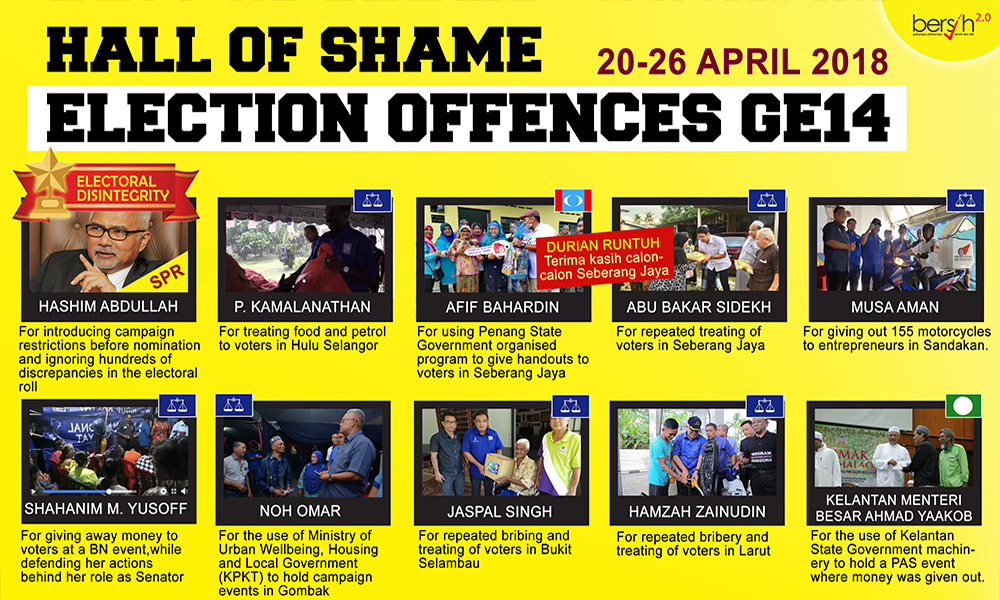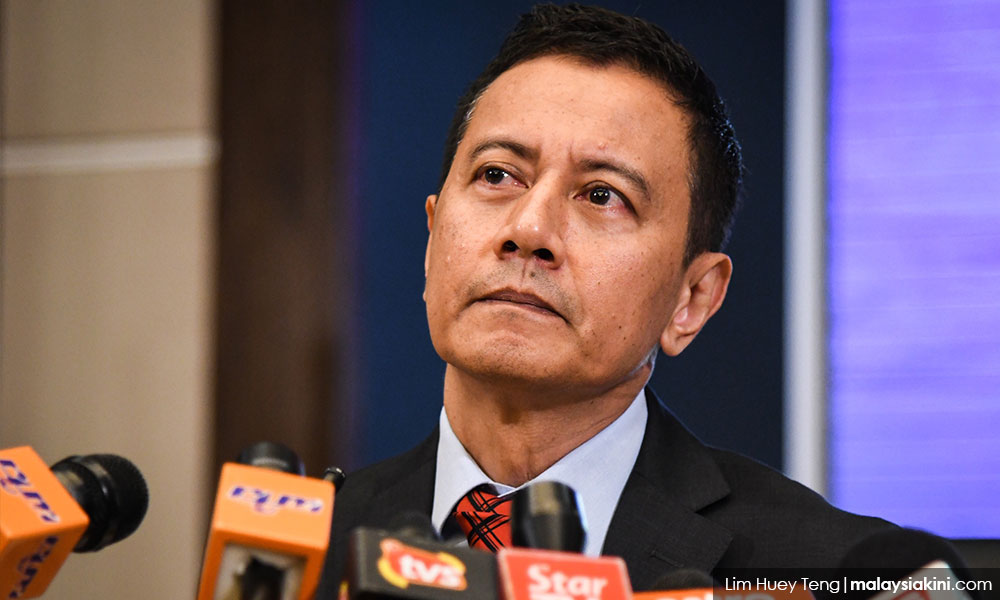COMMENT | On Oct 15, Rural Development Minister Rina Harun awarded grants to the Tanjung Piai Village Community Management Council ceremony and announced that the government had agreed to install 264 street lights within the constituency.
More recently, and closer to the Tanjung Piai by-election, Education Minister Maszlee Malik announced on Nov 11 that the federal government has allocated RM3 million to six schools in the Tanjung Piai parliamentary constituency to build open-air halls.
So, what is the difference between the Pakatan Harapan government and the previous BN government they used to condemn for this sort of blatant bribery of voters?
The Election Commission and Bersih 2.0 claim that such ministerial allocations to Tanjung Piai are legal. Are they? Is this the “free and fair election” reforms we marched for in all the Bersih rallies? Are the Election Commission and Bersih 2.0 not prepared to call a spade a spade and unequivocally condemn such last-minute constituency specific allocations as outright electoral bribery?
Plain blatant electoral bribery
For many years Harapan component parties and Bersih 2.0 have condemned BN's announcements of development allocation during elections as electoral bribery.
How can they condone such ministerial allocations now and say these are legal? First, take a look at Section 10 of the Election Offences Act:
Section 10: The following persons shall be deemed guilty of the offence of bribery:
(a) every person who, before, during or after an election, directly or indirectly, by himself or by any other person on his behalf, gives, lends, or agrees to give or lend, or offers, promises, or promises to procure or to endeavour to procure, any money or valuable consideration to or for any elector or voter, or to or for any person on behalf of any elector or voter or to or for any other person, in order to induce any elector or voter to vote or refrain from voting, or corruptly does any such act as aforesaid on account of such elector or voter having voted or refrained from voting at any election;…”
Section 10 defines bribery not just in the above sub-section but in nine sub-sections and if this Section 10 of the Election Offences Act is still not clear enough on this question of government allocations before any by-election, will the EC and Bersih 2.0 initiate legal reforms right away to ensure that such blatant electoral bribery is disallowed in any future elections?

GE13: Harapan condemned Najib’s inducements for projects
During GE13, then prime minister Najib Abdul Razak offered a slew of handouts at huge cost to public expenditure as election inducements and the Bersih 2.0 inspired "People’s Tribunal on Malaysia’s 13th general election" (held on March 24, 2014) rightly condemned this sort of unfair practices. This was the conclusion of their report:
“The borderline between bribery and abuse of government power to influence voters’ choices is a fine one… The evidence of bribery was strong. The Pemantau observers reported that money, handouts (vouchers/tickets/travel reimbursements), and promises of economic benefit upon victory by a particular candidate in exchanges of vote were common practice, especially by BN.
“Is there a ‘level playing field’, in the sense that as far as possible ‘government’ candidates and others compete equally without the former having unfair advantages? This is a specific example of the general principle that everyone standing in an election must have an equal chance of appealing to the voters. The evidence presented to the tribunal was of four types of violation of the position of the incumbent, the BN. First, by the making of government decisions in the run-up to the elections in a way apparently designed to influence the voters, particularly by favourable initiatives; second, by promises of policy benefits for communities that voted for BN; third, threats that areas that did not vote for the BN would be deprived of benefits from government; and finally, the actual use of government resources, including vehicles, for campaigning.
“The Merdeka Center reported that the caretaker government, after the dissolution of Parliament, committed pre-election fiscal manipulation for campaign purposes. Several big projects were announced during the caretaker period: RM8 billion for projects in Cyberjaya; MOU with Hindraf (Indian rights group); RM3.8 million allocations for Sikh groups; promising to build low and medium-cost houses in Penang; promising that GLC Sime Darby would build a new hospital in Kapar.

These were the findings and observations by the tribunal on the issue of level playing field:
“Governments want to win elections by showing the electorate that they have and will benefit from re-electing them. But the inducement should be the adoption of policies that benefit the people, not the use of government resources in ways that discriminate unfairly, and is little different from a bribe… The brazen use of government resources demonstrates an inability to distinguish between what belongs to the nation and what belongs to the party.”
So, give some teeth to the EC
Election Commission chief Azhar Harun (photo, above) claims that the EC does not have powers to investigate electoral offences. If the Harapan government under no-nonsense Prime Minister Dr Mahathir Mohamad is serious about “free and fair elections” in New Malaysia, isn’t it time to implement reforms to ensure that the EC has the teeth to step in to prevent blatant electoral bribery such as ministerial allocations before a by-election and to investigate and penalise such electoral bribery?
KUA KIA SOONG is the adviser of human rights NGO Suara Rakyat Malaysia (Suaram).
The views expressed here are those of the author/contributor and do not necessarily represent the views of Malaysiakini.

